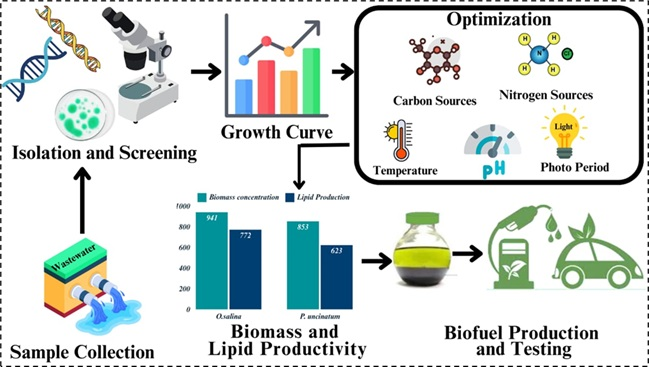
This work is mainly focused on the enhancement of biomass and lipid productivity of the cyanobacterial strains isolated from seawater to produce biodiesel. Initially, Seawater was collected, cultured, and analyzed to isolate cyanobacterial strains. The isolated cyanobacterial species were analyzed for their biochemical compositions. The isolated cyanobacterial strains Oscillatoria salina and Phormidium uncinatum were grown in four different media, including BG-11, BBM, WC, and ASN III under a mixotrophic condition. Their biomass and lipid productivities were compared. The influence of carbon and nitrogen sources and external variables such as pH, light intensity, and photoperiod on lipid and biomass yield were investigated. The growth of the cyanobacterial strains was enhanced by changing the pH, photoperiod, and light intensity. Two blue-green cyanobacterial strains grew more rapidly when the pH was raised to 10. Consequently, the lipids, carbohydrates, and proteins of the cyanobacterial cells were examined. Furthermore, the biomass and lipid content were enhanced by supplying the external carbon and sources as a nutrient source. These findings highlight the potential of Oscillatoria salina and Phormidium uncinatum as viable candidates for biodiesel production, with optimized culture conditions significantly enhancing biomass productivity.
Total file downloads: 13